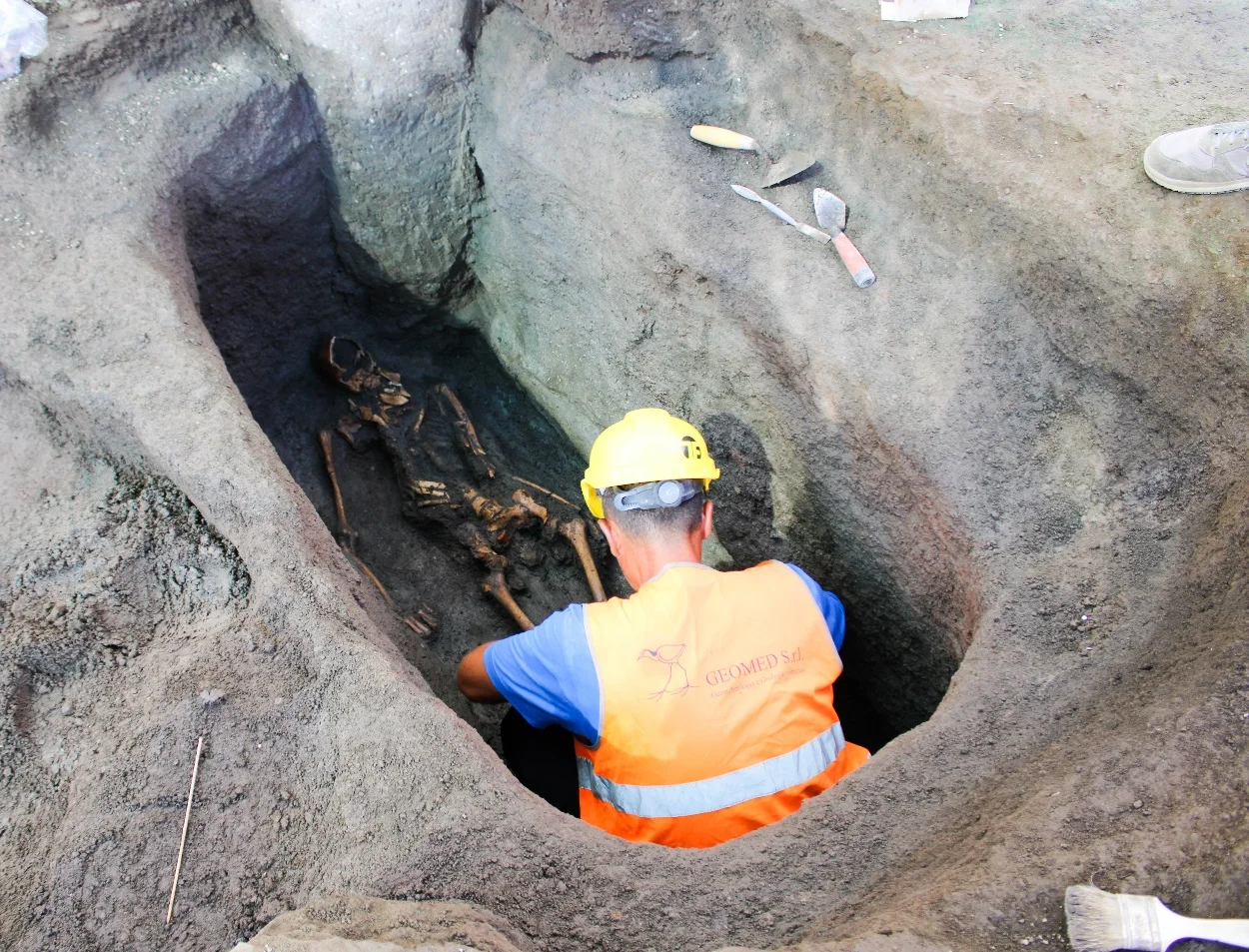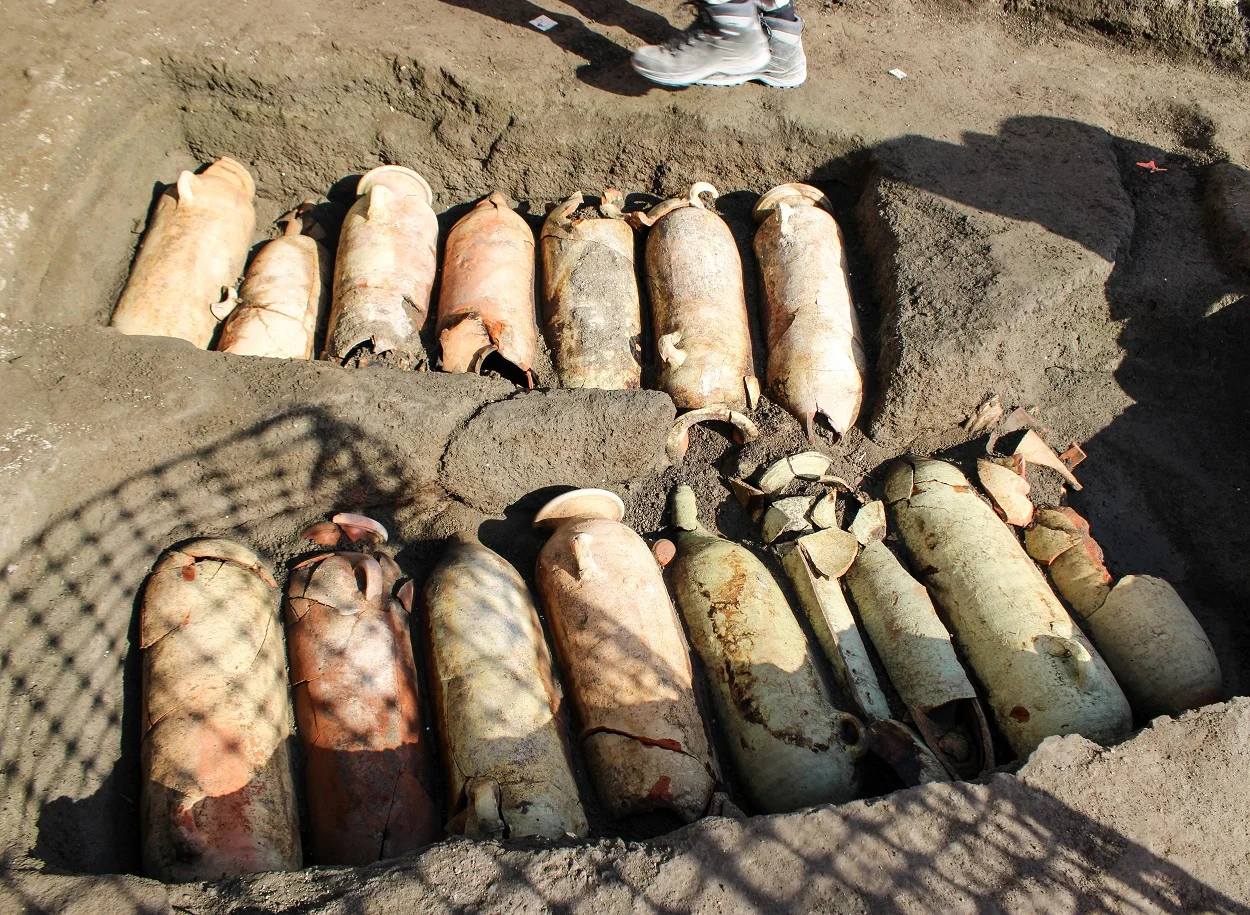Archaeologists under the direction from the Superintendence for the Naples Metropolitan Area have made several new discoveries near the Roman ruins of Pompeii in Italy’s Campania region.
Excavations have revealed 35 pre-Roman earthen pit burials, each covered with amphorae and arranged in an alternating neck and tip formation.
According to a press statement by the Superintendence, the necropolis was unearthed during construction works for an underground carpark on Via Fucci, a short distance from the eastern edge of the Roman city.
An analysis of the amphorae suggests that they date from the 3rd to 1st century BC and originate from North Africa, evidenced by the makers mark in the Punic language, also known as Carthaginian.
Due to the anaerobic conditions from being submerged in groundwater, the skeletal remains are well preserved and contain sparse funerary objects of unguentarians (a small ceramic bottle) and several coins.

Other pre-Roman objects have been found in a canal that are likely associated with destroyed funerary contexts. This includes hundreds of tile fragments, pieces of preserved wood, amphorae, and dolia – a large earthenware vessel used for storage or transportation of goods.
The canal also contained 20 small columella made from volcanic stone, tiles stamped in the local Oscan language, and a stone head made from grey Campanian tufa which depicts a woman with preserved red paint.
According to the archaeologists, the canal was likely built after Sulla’s siege of Pompeii during the Social War (91–87 BC), a conflict between the Roman Republic and several autonomous allies, including Pompeii.
Archaeologists also found traces of an extensive field system under the thick layers of pumice from the Vesuvian eruption in AD 79. The field system has evidence of ancient furrows and pits in a N-S direction, which supplied the markets and households of Roman Pompeii with fresh produce.
Organic remains and pollen are currently being analysed to identify the vegetables that were grown. However, the root systems and distribution indicate that perennial artichokes were likely cultivated in the area.
Header Image Credit : Superintendence for the Naples Metropolitan Area
Sources : Superintendence for the Naples Metropolitan Area





